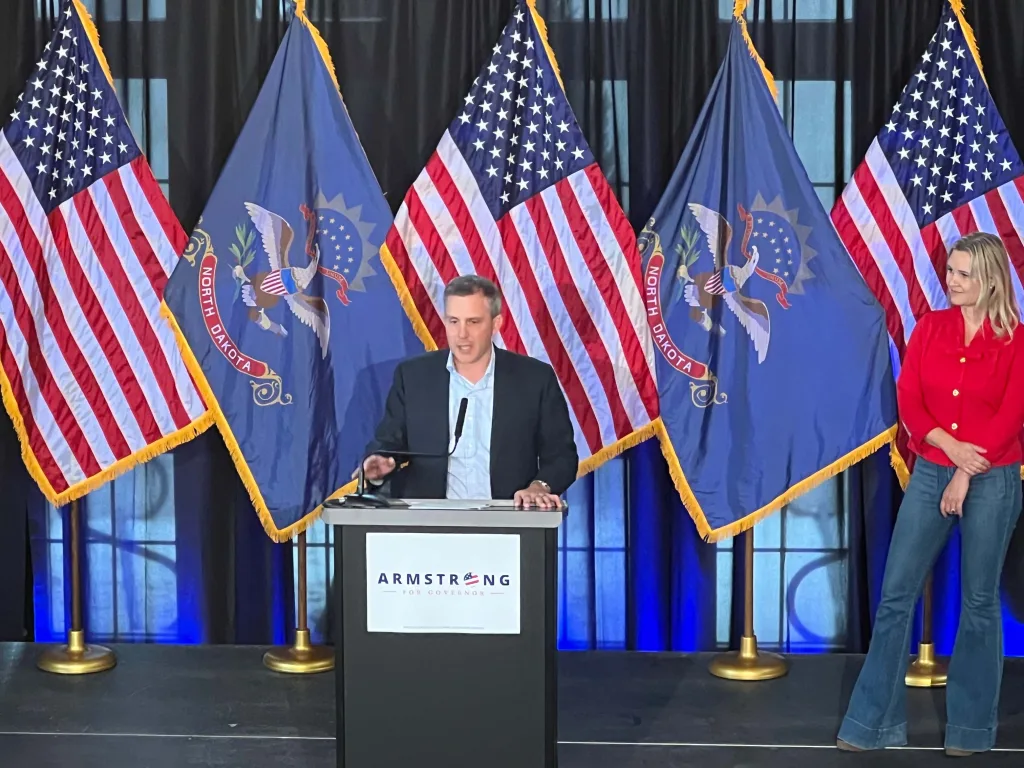

By: Mary Steurer (North Dakota Monitor)
Though North Dakota voters defeated a ballot measure to repeal the state’s assessment-based property tax system, state officials say the demand for tax relief isn’t going anywhere.
U.S. Rep. Kelly Armstrong, North Dakota’s governor-elect, has called property tax reform his top priority for the 2025 legislative session.
Armstrong opposed the ballot measure for fear it would force the state to cut essential programs. He said if the state doesn’t act soon, voters will revive the proposal.
“This will come back and it will come back fast,” Armstrong said at a Wednesday press conference.
The 2025 legislative session is on track to see dozens of bills related to property tax reform.
Legislative Council Director John Bjornson estimated that this office has been asked to draft roughly 45 bills related to taxation so far, most of which have to do with property taxes.
“Some are minor tweaks to one or two sections and some are complex major revisions that may be 50 to 100 pages,” Bjornson wrote in an email.
Senate Majority Leader David Hogue, R-Minot, said that a flood of property tax proposals could divide lawmakers’ efforts instead of uniting them.
“I am concerned that it can unravel,” Hogue said.
He said the Legislature also faces a significant messaging problem when it comes to tax relief. Lawmakers approved hundreds of millions of dollars in tax subsidies last year, but many residents don’t seem to notice a difference, Hogue said.
“It’s not getting across,” he said. “Part of it is just the nature of property taxes — the bill comes all at once, although the services that you get for that are delivered 365 days a year.”
The Legislature last year set aside $100 million for a new primary residence tax credit and significantly expanded an existing program that provides property tax relief to seniors and people with disabilities. Lawmakers also approved an estimated $358 million to cut income taxes for the 2023-2025 biennium.
Hogue said his preferred solution is to set limits on how much homeowners’ property tax bills can increase in a given year, a system often referred to as caps.
Annual tax caps could be tied to a metric like the U.S. Bureau of Labor Statistics Consumer Price Index, which measures inflation, he said.
Hogue said that tax caps would send the clearest message to North Dakotans that the state is committed to long-term tax relief.
The North Dakota Association of Counties has historically opposed property tax caps because it would limit local governments’ control over their budgets, said Donnell Preskey, the association’s government and public relations specialist.
Under property tax caps, local governments would lose a significant source of funding for unexpected expenses. Preskey said this could incentivize governments to max out their tax increases every year as they seek to save up for leaner times.
“We don’t think that you’re going to see what you expect to see with caps,” she said.
Preskey said the association might support ways of implementing tax caps that give local governments more flexibility. Preskey pointed to one proposal discussed during two September committee meetings that would give the system a “rollover” component. For example, if a county can increase property taxes by no more than 3% annually but only increases them by 2% one year, their cap for the following year would be 5%.
“It’s really come to light through the latest discussion around Measure 4 and eliminating property taxes that we really have to look at many different options and be open minded,” Preskey said.
Hogue also said local governments should be able to request permission to exceed property tax caps in certain circumstances.
In addition to property tax reductions, Armstrong said he wants to see the state pursue structural tax reform.
He said he’s amenable to proposals like expanding a tax relief program approved in 2023 that allowed homeowners to apply for $500 off their 2024 property taxes.
Armstrong said the state could also increase its subsidies to local governments, though he doesn’t see this approach as a permanent solution. The state has reduced local property taxes by increasing how much it pays for public schools, for example. The state currently covers about 70% of educational costs while local property taxes support another 23%, according to data published by the State Department of Public Instruction.
The Legislature’s Tax Relief Advisory Committee was tasked with studying tax relief — including for property taxes — this interim session. The committee adjourned in September without endorsing any bill proposals related to property taxes.
Rep. Glenn Bosch, who served on the committee, said at the group’s final meeting that its mandate was to research, not to draft bills.
“I think we were here to learn, to gather information … and forward that information to our colleagues,” the Bismarck Republican said.
The committee’s report will be presented to Legislative Management next week.
Had Measure 4 passed on the ballot, it would have eliminated property taxes based on assessed value.
It would have also required the state to reimburse local governments annually by an amount no less than the revenue they collect from property taxes for the 2024 tax year.
The measure would have cost the state roughly $3.15 billion over the 2025-2027 biennium, according to the fiscal impact statement that appeared on the ballot.
Supporters of the measure said this estimate was overblown, and that it would have cost closer to $2.32 billion per two-year budget cycle.
Roughly 63% of ballots were cast against the proposal in complete but unofficial results.
“My main hope now is that the Legislature will finally once and for all take up true reform and true property tax relief,” Rick Becker, chair of the measure’s sponsoring committee, said Tuesday night.